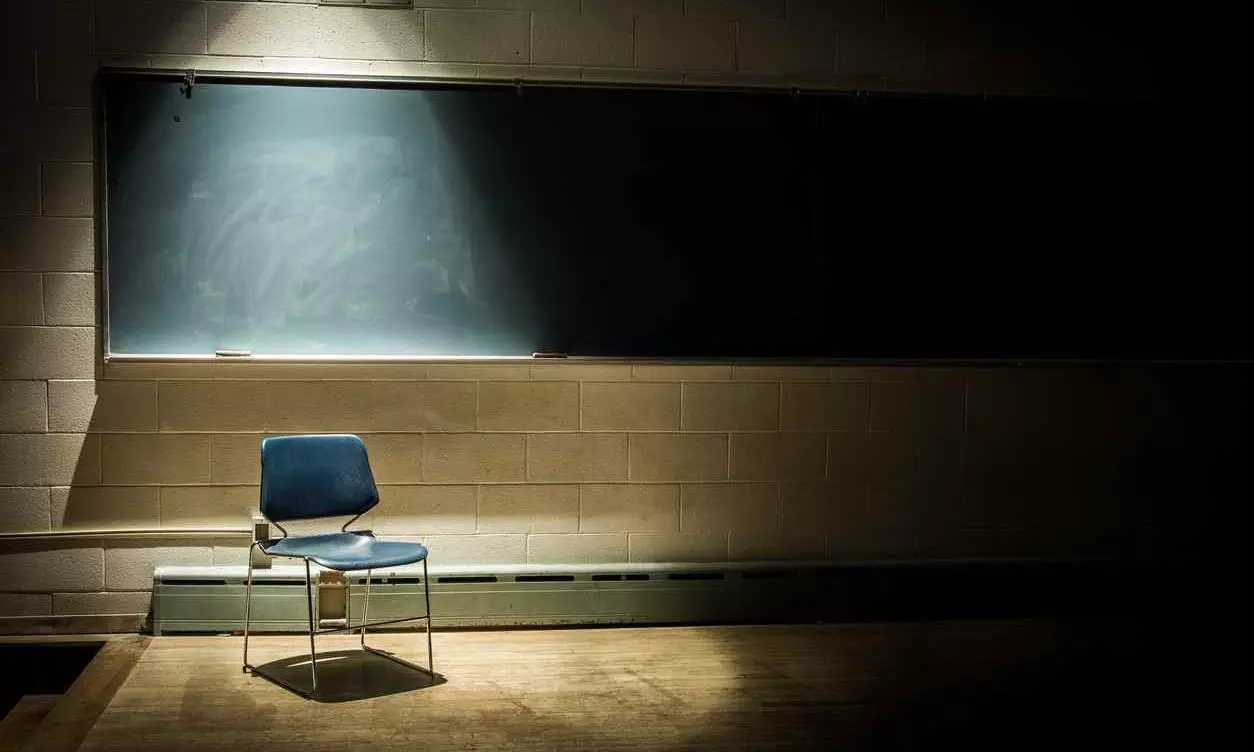
Professor shortage leaves TN govt arts and science colleges struggling
Over 50 pc of these colleges are reportedly functioning without principals and enough professors; out of 180 colleges, 96 do not have principals

The Tamil Nadu government has been aggressively expanding its network of government arts and science colleges in rural areas, but more than half of these are operating without permanent principals and facing a serious shortage of professors.
Even as Tamil Nadu Higher Education Minister Govi Chezhiyan blames backlogs from the AIADMK regime and pending court cases over the appointment of professors as major reasons, student and teachers’ associations are not convinced by his argument.
No hirings, only transfers
Sources say over 50 per cent of Tamil Nadu’s government arts and science colleges are functioning without principals and enough professors. Out of 180 colleges, 96 do not have principals.
Over the past four years, Tamil Nadu has inaugurated 35 new government arts and science colleges, with 15 more added this year alone, including in rural pockets like Alandur, Panruti, Cheyyur, and Thuraiyur.
When The Federal contacted Higher Education Minister Govi Chezhiyan, he said the number of vacancies appears large because teaching posts have remained unfilled through the Teachers Recruitment Board (TRB) since 2015.
Yet, alarmingly, not a single permanent faculty member has been hired. Instead, they have been transferred from existing colleges, impacting department strength and quality, while also triggering fears that older institutions could be further depleted.
Also read: TN yet to open RTE admissions online over Centre withholding funds; parents suffer
Guest lecturers running show
Experts warn that such rapid expansion, without supporting infrastructure and human resources, risks reducing higher education to a box-ticking exercise.
Speaking to The Federal, educationist R Saranya said the Tamil Nadu government boasts having one of the highest Gross Enrolment Ratios in India (47 per cent), but the actual learning environment is deteriorating.
“Without full-time teachers in classrooms, we are managing the show only with guest lecturers, that too, in the absence of principals. How can you expect our students to receive quality education in government institutions? We are indirectly pushing our students to consider private colleges instead,” said Saranya.
Lack of mentorship
She also pointed out that scores of first-generation learners who opt for government colleges do not receive the mentorship needed to improve their skill sets.
“Many students attend college only for the monthly stipend of Rs 1,000. With minimal mentorship and inadequate academic exposure, what kind of placement will our students get after completing their degrees?” she remarked.
Various teachers’ associations, including the Tamil Nadu Higher Education Teachers’ Association, have alerted the Higher Education Ministry about the decline of institutions on the ground.
“Immediate recruitment drives to fill professor and principal vacancies, along with transparent hiring timelines and accountability from the Higher Education Department, would be the only solution,” read an appeal from the associations.
Also read: TN has 176 state-run arts, science colleges now as CM throws opens 11 more
Minister cites legal hurdle
When The Federal contacted Higher Education Minister Govi Chezhiyan, he said the number of vacancies appears large because teaching posts have remained unfilled through the Teachers Recruitment Board (TRB) since 2015.
“The AIADMK failed to fill these vacant posts for almost a decade. The DMK government has taken responsibility and issued an order to fill 4,000 teaching posts through the TRB. However, 54 legal cases have been filed in this regard, leading to delays in the recruitment process. The government is actively pursuing legal measures to resolve these cases at the earliest and proceed with the recruitment,” said the minister.
He added that around 800 vacancies are currently being managed by guest faculty across various colleges. “While the appointment of guest faculty has ensured continuity, concerns persist regarding the quality of instruction, given that many of these temporary staff lack long-term incentives, mentoring roles, or research responsibilities. We are taking measures to rectify this,” he said.

